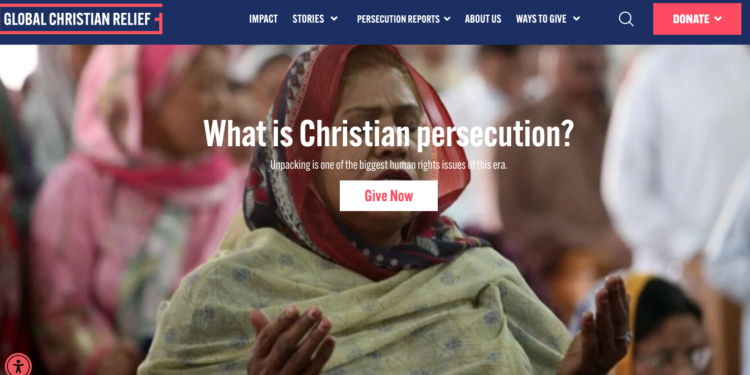The impact of Christian persecution on people and society at large is profound. It affects not only the people who are directly targeted but also religious groups, societal dynamics, and even geopolitical environments. Comprehending these consequences is essential to appreciating the wider consequences of persecution and devising effective countermeasures.
Erosion of Religious Freedom:
Within afflicted areas, the degradation of religious freedom is one of the most prominent repercussions of the examples of Christian persecution today. All religious minorities get a frightening message that their rights are unprotected when governments or radical organizations persecute Christians for their religious convictions. The pluralistic fabric of society is threatened by this loss of religious freedom, which also stifles free speech. Laws and regulations that prohibit religious activities, access to religious education, or the publication of religious books can be implemented in nations where Christians are persecuted. Such actions not only violate Christians’ rights but also create a dangerous precedent for the persecution of other religious groups. In the end, the loss of religious freedom erodes the social cohesiveness required for peaceful cooperation by fostering an atmosphere of fear and prejudice.
Displacement and Disintegration of Communities:
Persecuting Christians often results in the forcible relocation of both people and whole communities, upending established social structures and cultural customs. Christians can be forced to leave their homes in search of safety and sanctuary when they encounter violence, prejudice, or legal persecution. Due to family breakups and the loss of support systems, this relocation can cause long-standing communities to fall apart. Individuals who experience a loss of community cohesiveness often struggle with the psychological and social ramifications of being uprooted and having to start again. Christians who have been uprooted can find it difficult to start again in strange places where they would encounter obstacles in getting work, education, and healthcare. Furthermore, the lack of thriving Christian communities can deprive society of the variety of viewpoints and intellectual and cultural contributions that Christians bring to the table.
Impact on Mental Health and Well-being:
The horrors of Christian persecution have a detrimental effect on people’s mental health and general well-being. Post-traumatic stress disorder (PTSD), sadness, and anxiety can result from experiencing prejudice, losing loved ones, and living in continual danger of violence. Persecution can leave psychological scars that last long after physical wounds have healed, impacting victims and their families for many generations. Furthermore, feeling alone and alienated can be made worse by the shame attached to being persecuted for one’s religious beliefs, which worsens mental health consequences. Accessing mental health care can be challenging or socially unacceptable in nations where Christians are persecuted, which exacerbates the pain of individuals impacted. Healing and resilience must be prioritized in culturally appropriate ways when attending to the mental health needs of persecuted Christians.
Religious Radicalization and Extremism:
Inversely, persecution of Christians can encourage extremism and religious radicalization among impacted populations. People who feel as if their religion is under attack might be more receptive to radical ideologies that guarantee safety or revenge. Christians who identify as radicalized can support violent resistance or form coalitions with other like-minded organizations to take on alleged oppressors. Growing religious fanaticism among Christians who are being persecuted can exacerbate already existing tensions and fuel cycles of violence and retaliation. Furthermore, radical groups can use the suffering endured by Christians as a springboard for their own political or ideological goals, escalating hostilities and sabotaging attempts at peacemaking. To stop religious radicalization, it is necessary to address the underlying issues and weaknesses that encourage its growth.
Global Diplomatic and Humanitarian Response:
The aims and tactics of countries, international organizations, and advocacy groups are shaped by Christian persecution, which has a substantial impact on international diplomacy and humanitarian activities. Prioritizing religious freedom allows nations to deal with cases of persecution and hold offenders responsible by using diplomatic pressure, penalties, or conditional assistance. When it comes to helping persecuted Christians with emergency aid, relocation assistance, and rights advocacy, humanitarian groups are vital. In addition to inspiring grassroots activity and worldwide solidarity, the suffering of persecuted Christians also catalyzes campaigns, petitions, and demonstrations that attempt to increase public awareness and spur action.
Conclusion:
In conclusion, Christian persecution has an influence on religious freedom, social cohesiveness, mental health, and international diplomacy, in addition to the people who are directly attacked. A multifaceted strategy that includes legal safeguards, humanitarian help, mental health support, and diplomatic engagement is needed to address the underlying causes of persecution and assist the impacted people.



